|
The Breadcrumbs widget will appear here on the published site.
Announcements
We ask the adults in our congregation to not dress up this year. The amount of makeup you use on a general Shabbis already scares the children. If you add any more makeup we will lose congregants. The Purim Carnival will include a Throw the Sponge at Bernie Booth. A communal request has been put out to not give your trash away in the Mishloach Manot. This includes Hamentashen made by you. Please only include bite size chocolate. The annual boutique sale fundraiser will take place this week. If you’re looking for gaudy hats, Mrs. Klein will be selling her collection.. Upcoming Classes: How to Not Look Scary During the Rest of the Year By Not Overusing Botox. How To Give Mishloach Manot That People Want. How to Not Miss Shul When It’s the Only Torah Reading You Have A Chiyuv to Hear. Rabbi Mendelchem's Drasha Excerpts Shabbat Shalom My Pupils... Yes. It’s Parshat Zachor. We have to remember to wipe out Amalek... You can’t even remember to turn on the heating in the shul... It’s freezing in here. The temp outside is 15. When everybody is wearing their winter coat in shul, there’s an issue... (Vayikra 1:17) The fowl, the cheapest offering, that which is from a bird is ‘an elevation offering, a fire offering, a satisfying aroma to Gd’... No. You can afford more. You are just cheap. The last donation you gave to the shul was a box of pasta you didn’t want. That’s supposed to be for the homeless... The shul is not homeless. You pay the rabbi a wage that is... The board is just too cheap to put on the heat... We're speaking of satisfying aromas to H'. Doing things that are pleasing to H'. Not the board. How is the cheapest still just as satisfying to H’? Rashi brings in the Gemaras and teaches us that no matter how much one brings, bug or small, ‘so long as his heart is directed to Heaven’... I would not say that Bernie has a heart. The president definitely... You are just cheap. Nothing to do with heart... You can’t even remember Heaven... It is still an elevation offering, and it is pleasing to H’. (Berachos 5b) There are three kinds of elevation offerings. Herd, flock and fowl. As long as one serves H’ according to their ability, it is accepted. ‘One who does more or less is the same, as long as the intent is for Heaven.’ You wouldn’t even remember if it was for Shamaim. I think we have to stop using 'spirituality' as an excuse to not give money. 'Spirituality' is not an excuse to not come to shul... The money raised by the board is not satisfying. I haven’t gotten a raise... Is it for H’? I haven't seen much money in the Tzedakah box... The fundraisers aren’t even Jewish. What does a boutique have to do with Judaism?... Then call it a thrift shop fundraiser. At least that sounds like charity, and me not being forced to purchase Mrs. Klein's oversized hats... Yes. Every fundraiser should be a Choolante sale. Not a satisfying aroma to H’. But Jewish. Mrs. Klein. Your hats are a bit too much... Rachel. I didn't even realize you were there. You were blocked by Mrs. Klein's fedora... The widest brimmed fedora I have ever seen without a feather. And no dressing up this Purim. Nobody does it for Gd.... Are you wearing a mask today Fran?... Then that is way too much makeup. You scare the kids. You scare me... With the makeup you're a foot closer to me... The makeup is not spiritual. You Mishloach Manot is not spiritual, and it is not for H'. I said it. It's your trash... Poppy seed Hamentashen. Exactly. Cheap and not satisfying.... Choolante in Mishloach Manot would at least be spiritual... We are looking for non-spiritual satisfying aromas to H'. Such as Nutella Hamentashen. The carnival was excellent. Especially the Throw the Sponge at Bernie Booth. it was the first decent idea the board came up with. It was a satisfying spiritual experience to see Bernie get hit. Everybody was pleased by that. It was pleasing to H' to see Bernie get hit by a wet sponge... Rivka's Rundown I believe the fundraisers are there so people can feel not guilty about doing things that are Jewishly wrong. There was a Wednesday Night Binge Drinking for Gd, which seemed like an excuse to drink and wrong. Other fundraisers we had included casino night. And that wasn’t even on Chanukah. By the way, the fundraisers brought twelve dollars to the shul. People brought their own alcohol to the binge, and the casino night was all done with fake money. People could've given money to the shul. We're just a cheap congregation. Mrs. Klein is a bit much with her hats. I think she hit me with one of them last week. Didn't even apologize. I know Fran hit me with her makeup, because I had a mark on my face. It’s either makeup or Botox. Actually, it’s usually both together. A lot of it. I think our community would get along much better if we didn’t give each other Mishloach Manot. The gift baskets are a burden. When you see what they give you, it’s offensive. They think I need more bite size chocolate. If the wrapper doesn’t fully spell out Snickers, if I just get an ‘n’, I am not happy. The way people want Mishloach Manot class was taken to heart. People stopped giving it. Once they heard that anything other than bite size chocolate is not appreciated they all had to go back to Walmart with their Easter Bunnies. I would've rather had one of the Kosher Easter Bunnies. I think it's very important the rabbis give a Hashgacha to Easter. The chocolate is amazing. If all chickens hatched chocolate eggs, more kids would eat healthy. The rabbi was at the Throw the Sponge at Bernie Booth for two hours. He didn’t let any kids throw a sponge at Bernie. He said they didn’t have good enough arms. When asked why he was there all day throwing sponges, he said it was for Tzedakah. The spiritual excuse of not coming to shul and bad Hamentashen is very bothersome. It smells of something not pleasant. The Blog Tags Widget will appear here on the published site.
Tags:
The Recommended Content Widget will appear here on the published site.
The Breadcrumbs widget will appear here on the published site.
Purim Carnival Booths3/20/2024
The Purim carnival, mastered by the JCCs and Jewish day schools, is the only Purim tradition not mentioned in the Megillah. Even so, it is vital for the communal celebration of Purim. Nothing makes for more good times than a carnival. As a child, I always wanted to go to an amusement park that used no electricity, with all of the staff being members of the shul.
Today, let us focus on the throwing stuff booths. The equivalent to the water gun shooting races at the amusement park, at carnivals people use the water guns to shoot people. But we stick to throwing sports. Here are the top three throws you should have at your carnival. The Throw the Sponge at David’s Face Booth This was a lot of fun, until I reached 8th grade and was the object of the sponge. The most traditional of booths, you take a sponge, soak it with water and hit somebody with it. The idea is to make sure the sponge hurts. If you want to make it sound good for Purim, you can call it the ‘Hurt Haman Booth.’ And then you put somebody there who didn't come prepared to get abused or wet. I am happy they did not have access to the water dunk tank that year. Once the children learned that anything that hit the bullseye would dunk me, they stopped using balls. At least some of the tiny children found it challenging to reach the bullseye with their hands. Sock Throw Take socks and whip them at somebody. This game is very similar to the Bar Mitzvah boy game, where we whip candies at a child to celebrate them reading the Torah well. This is like a sponge booth that doesn’t require water, this event can take place in a carpeted room. People can get carried away with the love of hitting others with things, especially if you call the object of the sock ‘Haman.’ So, for safety, please discourage people from throwing shoes, food or any kind of waste at the volunteer. Additional safety precautions: Do not allow people with sticks are canes near your Haman. The JCC had to stop with the sock throw booth after a very devout man took his cane, started hitting Haman and yelling, ‘You anti-Semite. I will avenge my people.’ It was later found out that Haman was the shul Gabai (sexton), and the devout man hitting him did not receive the honor of opening the ark that week. Bean Bag Tic Tac Toe Part of the throwing trilogy, this is the only throwing sport that does not require the potential injury of a member of the community. You take a big plastic tic tac toe contraption, where each of the x’s and o’s are on one side of a triangle, that spins if hit. This is the only thing that will make a game of Tic Tac Toe challenging, after you figure out that you win if you take the middle. This can also work with a hacky sack. Use small items. Do not toss a pouffe, this is not a strong man competition. The pouffe will just knock over the contraption. Again, socks can be used here. Many people keep socks with holes in them to hurt people with at the Purim carnival. Many people also keep a huge stash of plastic bags, but that is not for the Purim carnival. Next year we shall discuss the many more booths, including head sports and arts and crafts that center around the apple bob other unsanitary events, IY"H. The Blog Tags Widget will appear here on the published site.
Tags:
The Recommended Content Widget will appear here on the published site.
The Breadcrumbs widget will appear here on the published site.
Announcements
Purim is this Tuesday. There is no reason to drink on Shabbat, unless if you have to deal with the new Shul Simcha Committee. They are very annoying and will bring anybody to drinking. Anybody married to Harold Feinbloom can also drink. Other than that, drunkenness is Asur. The costume parade will include true Mardi Gras performers. We don't want another pathetic showing of poorly tailored Esther costumes. This week's Kiddish honors a Jew. Sign up for the shul luncheon. It's not a Kiddish. This means you have to pay. We understand how paying can ruin your happiness. If you spent time with the Simcha Committee, you'd understand that there's many ways to ruin Simcha; such as sitting in at one of their meetings. We're asking for Machatzit Hashekel. We realize we'll never collect the full amount of dues. If we can at least get half an nis from congregants, that will be appreciated. Rabbi Mendelchem’s Sermon Excerpts Shabbat Shalom My Pupils... (Shemot 28:2) 'And you shall make holy vestments for Aharon your brother, for glory and splendor.' Our Gabai has the ugliest suit I have ever... Well. You're representing the congregation. This is the most disheveled membership... It's Shabbis. It's not Purim. On Shabbat you wear holy stuff... Yeah. Like a tie. We're not in Israel. Apikorsim here... Well, I though that was a costume. It's got to be the ugliest dress I have seen. Make vestments. Not costumes... There's a difference. A vestment is a work of fine clothing. A costume is something that looks like a vestment if it were not to last a day... Yes. It's not fine material. Rivka's sweater is bad material... No. It's a costume. That can't be regular clothes. That's a thread count of two. When families make clothes for each other... Your Chanukah sweater was an Asur gift. No glory wearing that. Rambam Hilchot Mada says a Chacham should not walk around in messed up clothes... Costumes. Yes. That means costumes. Which is why I won't dress up this Purim... That was meant for the Gabai. I can't get over how ugly that suit is. The sun is shining off it... Polyester... If you were a Chacham, a wise man, you wouldn't wear that... Because it's ugly. Do you need the Rambam to tell you this?! It was all made to serve H'.... They were to minister to H' (28:1)... The Kohanim were ministers... Jewish ministers in the Temple. Not a church... That's why they didn't look like Tzurel and Sam... That's a polyester suit. It's about caring for each other. You don't let your brother walk out of the house looking like that... Purim is Monday night. It's Shabbis right now. No need for a costume... A costume or an ugly outfit like... (28:6) 'The work of a thinker'... Yes. That's how I translate it. You think before you get dressed. You go to a decent tailor... Think. Half of you look like you're part of a 1990s gang with one leg shorter than the other. You guys in this shul never think… Well look at the Purim carnival program. It’s not supposed to be Carnival. You have an apple bob. You don't have a dragon dancing through the shul... You don’t show up to shul drunk for Parshat Zachor… That’s not celebrating. That’s alcoholism… That’s not a hangover. That’s drunk. That's why we end up with a dragon and polyester suits. It's about remembering. Zachor... To wipe out Amalek. To remember congregants that have wronged you. The Simhca Committee is very annoying... Yes. They've wronged me. I sat in and listened to the chair... No idea who gave her a chair. It would've been rude not to... That’s why your clothes are messed up. Next time, don’t get dressed drunk... Zachor. Remember. Remember to look decent. Remember to wear a tie for once... Your costumes are pathetic… A ghost? That was a sheet. You didn’t even cut holes in it… I understand. You didn’t want to ruin the bedding. That’s fiscally responsible and a poor costume... At least give Machatzit HaShekel. You don't give to your Shabbis clothes. And don’t forget to give money to Od Yosef Chai… It’s supposed be for two meals… Three dollars doesn’t cover two meals… What are you eating? Rice? Dinner is rice and rice... That's what you feed poor people. And that's why next week's Kiddish is rice. Rivka’s Rundown The way our membership uses Purim as an excuse to drink for three weeks. I don't know if sports bars is what Mordechai had in mind. Between us, the rabbi got lazy and didn't want to go shopping for another costume this year. He usually shows up in some amazingly intricate cultural costume. Come to think of it. I think he's just worried he will get cancelled for dressing up on Purim. Saying it's forbidden to wear a costume was a good way to work around the wokeness of our shul. I think people not dressing up as stigmas of other people will make it hard to find costumes. We'll be stuck with American looking Queen Esthers and that's it. The costumes in our shul are pathetic. One guy dressed up as an office manager. You know what he does for a living? He’s an office manager. How many Queen Esthers do we need?! Does every eight year old need to be Queen Esther?! Tzurel's dress was an ugly dress. You only wear ugly like that if it's a costume. We need better dressed people in the congregation. The Mardi Gras people really added to the Purim spirit. Though, it would have been more appropriate for our Jewish holiday if they weren't wearing crosses. The shul gave up and decided on Machatzit HaShekel for dues. They even had a hard time getting people to give a half a shekel. Some said they’ll give one eighteenth of a shekel as it’s more meaningful. Most of the high shoolers in the congregation hate hearing 18. They're mad that so many people low-balled them by using Chai to justify cheap Bar and Bat Mitzvah gifts. They're just being cheap. Some of the congregants have started buying gifts at 5 and Below, writing a card that says 'Chai' on it. They served the food on one table, I had to wait to get near the choolante, I got hit by an older man that wanted Kichel. It was a Kiddish. It was a Kiddish and we paid a lot of money for it. A scam. That was more than Machatzit Hashekel. The rabbi didn't give a list of the congregants that wronged him. He's got a lot of built up anger over the years. And the Simcha Committee brought it out. The Blog Tags Widget will appear here on the published site.
Tags:
The Recommended Content Widget will appear here on the published site.
The Breadcrumbs widget will appear here on the published site.
This interview took place after Megillah reading on Purim evening. The little kids were getting their candy-filled Mishloach Manot. A bunch of the little girls were dressed as Queen Esther, so I asked one of them why. She just wanted her candy.
Who are you? Queen Esther Why are you dressed as Queen Esther? I love Queen Esther. Why did you not dress as Vashti? I hate her. Why do you hate Vashti? She's not nice. She wasn't bad to the Jews. Well she was bad to me. Why? My mom dressed me as Vashti last year, and I looked like an idiot. Can I get my candy?! Do you like Mordechai? I hate Mordechai. He pulled my hair last year. Did Queen Esther do anything about that? I was Vashti. So, I smacked Mordechai. Oh. Which Purim character do you like? My mom. When she doesn't dress me as Vashti. I see, you have a beautiful little tiara. Did Queen Esther have a tiara? Yes. What was her tiara made of? Felt fabric sheets. Are you sure? No. It might have been made of plastic. Wait. It was definitely paper. Are you sure? Yes. You can cut that easier. We learned that in arts and crafts class. What else did Queen Esther wear? Her ballet dress. Did she use makeup? No. Her mom didn't let her. What's your name little lady? Esther. No. What's your name? I'm Esther. I know you're Queen Esther. But, who are you? (no answer) You're doing a great job in character. What grade are you in? Can I get my candy?! What do you want to be next year? Mom! She's not giving me candy!!! Conclusion When she started yelling, I gave her the candy. You can get arrested for not giving a child candy. As I learned, when a kid is screaming it makes no difference if you hit them or don't give them candy, or if you gave them a kind morning greeting. It's abuse. When Esther wants her candy, you give it to her. As she was walking away, I asked her if Queen Esther had temper tantrums. I found out her name was Esther. If she wasn't dressed as Queen Esther, that could've saved a good minute and a half of the interview. The Blog Tags Widget will appear here on the published site.
Tags:
The Recommended Content Widget will appear here on the published site.
The Breadcrumbs widget will appear here on the published site.
Since the Jews didn’t get massacred on Purim, we celebrate by giving gift baskets to our friends and neighbors, known as Mishloach Manot. The rabbis of the time found it very important to celebrate Jewish victories with wicker.
As history has it, many of the first Mishloach Manot were met with skepticism, as the Jews of the time were scared the gift baskets contained bombs. They were still worried about Haman's planned massacre, and gift baskets can be quite crafty. Being that none of the baskets were wired, the tradition of giving Mishloach Manot without detonation devices is now a Mitzvah. The gift basket must include at least two types of foods that your friends will have to throw out before Pesach. And that summarizes the history and Halachot of Mishloach Manot. Over the years I have received many Mishloach Manot. And there is one rule that all Jews follow; when giving Mishloach Manot be sure that it contains something you don't want. Here are a few items that should be in your gift baskets. Give Lemon Wafers Nobody likes lemon wafers. They come stale. That is how they are made. Thus, making it the perfect item to place in your gift basket. Not just inedible, it is also hard to clean for Pesach. If you purchased a mixed package, pull out the chocolate wafers (people like those) and tinfoil the lemon wafers into your Mishloach Manot. Stuff Still in Your Pantry Do not give away food you will eat. That is a waste. Think about your Mishloach Manot like a food drive collection bin for poor people. You have tuna you haven’t used in four years, throw it in there. Give beans, rice, anything that is taking up room in your cabinets and is past expiration. Canned vegetables is optimal. A can of peas and carrots is perfect. Nobody likes that. Make Hamentashen People like chocolate hamentashen. This is why it is proper etiquette to give poppy seed hamentashen. People don’t like poppy seed hamentashen. People like chocolate, so you make poppy seed hamentashen. It looks like chocolate hamentashen, and then whamo, a surprise right in their basket. It always puts a smile on the face of the recipient when they get something they don’t want. Give Candies Make sure that whatever you give the people is something that they do not allow their children to eat. Taffy is perfect; bad for the metabolism and the teeth. Nobody wants leftover Halloween candy you found on sale at the grocery, which again makes sweets optimal for Mishloach Manot. As I always say: It's never the wrong time to shop at the Christmas Tree Shops. Take Out The Good Stuff If using Mishloach Manot from other people, take out any decent bottles of wine. Sometimes the Feigenblums make a mistake and give something decent, along with the poppy seed. Thus, always check the basket before reMishloaching. This is also the reason why everybody thinks the Feigenblums are cheap. Not fair to them, but you should enjoy the wine. It is a mitzvah to be happy. And many people have asked me why the Feigenblums made out their Mishloach Manot card to me, when it was to be given to them. For that, I blame the Feigenblums. Put in Stuff You Don’t Want I cannot reiterate this enough. If you cannot return it to the store, that is Mishloach Manot. Don’t waste money on your friends. It is the thought that counts, and you care about the world. Hence, you recycle, and you let your friends pay for dinner when you go out with them. Go Green: Leftovers from two Shabbats ago is perfect for the gift basket (or gift bin). By that time, the choolante should be hard enough to not mess up the Hamentashen. Files that you can’t find the heart to throw out. Perfect for Mishloach Manot. Taxes are good, as tax season is coming. Old pictures. Expired passport photos. It doesn’t have to just be food. Anything you need to throw in the bin can also be Mishloach Manot. The idea is to get rid of stuff. The less you have to throw out for Pesach, the better. Mishloach Manot is a time to start cleaning out your home of stuff you don't want. Which means the Feigenblum's Mishloach Manot. The Blog Tags Widget will appear here on the published site.
Tags:
The Recommended Content Widget will appear here on the published site.
The Breadcrumbs widget will appear here on the published site.
Rabbi David. Why do we not do Hallel on Purim? We say it on Chanukah.
I don't believe that last part is a question. That's a statement. As such, I shall answer the first part, which ends with a question mark. Questions should always have question marks. If you can please tell the other congregants that a statement is not a question; that will help with the next guest speakers Q and A. They will appreciate questions being in question in form, and not speech form. The reason we don't say Hallel on Purim is that we're reading the Megillah. After reading the Megillah it would be way too painful. After an hour or so of Megillah and groggers to have to also then do Hallel, we would lose members. People would run from shul in fear. Reading the Megillah is an hour or so. It can last up to an hour and half with excitable kids. Hence, you should always be sure to read the Megillah without kids. Why do we say Hallel on Chanukah? Now, that's a question. Because there are no decent Chanukah songs for Frum Jews. 'I Had a Little Dreidel,' 'Sevivon Sov Sov Sov,' 'Hashkeidiah Porachat,' 'Chanukah Chag Yafeh Kol Kach.' I question if there are any Jewish Chanukah songs. We need Hallel to ensure some Jewish songs are sung on Chanukah. If it was up to our congregants we'd be singing 'Silent Night' around the Menorah. We're going to sing Hallel. Why does everybody in Israel constantly say 'Sufganiot make you fat' all of Chanukah? They're not going to say it on Pesach. It's annoying and it ruins my Chanukah. We all know doughnuts are not good on a diet. Weight Watchers doesn't have doughnuts on their list. They have munchkins. And nobody is enjoying a Sufganiah munchkin quota. They always say it right when they're eating the jelly filled oil doughnuts, to ward off the demons of fat. I can't enjoy the sucking out the jelly from a third Sufganiah when I'm hearing, 'These things make you fat.' They kill the whole holiday for me. Nobody should be worried about fat till after the holiday, when they have to take off fifteen pounds. That's the Psak. If these people really cared, they would give you a Sufganiah and a new pair of pants, and they would tell you to enjoy your Chanukah. Truth is, they would say it on Pesach. But Pesach they're saying 'Matzah makes you fat.' They find way to ruin my Pesach. Do I have to purchase gifts? If you want your family to love you. Why is Chabad's Chanukiah so much bigger than the one we lit at shul? I'm not willing to risk my life to light the Chanukah Menorah. Are you? Exactly. It's Sakanat Nifashot. I was never involved in construction. I will not start now with a Chanukiah, at the age of fifty-eight. I won't be raised fifteen stories in a bucket. Nor will I stand on a scaffolding to light for the third night. I saw that rabbi up on the Chanukiah. The Chanukiah was bigger than his house. The real question is if the Chabad rabbi is going to do additions to his home. Like a room with a big window, to light Chanukiahs on Chanukah. Chanukah lighting is not a competition. How long your Seder lasts is a competition. That's something to brag about. Where should we shop for Chanukah? You need milk? Yes. The grocery store. There's a decent convenience store down the block as well. It used to be a 7-Eleven. Rabbi David's Notes These congregants are so annoying. I understand I'm a Gadol, but everybody comes to me with the most annoying questions. Can any of these people make decisions themselves? I have to answer that question too now. Why do I always have to compete with the Chabad rabbi? I do believe our shul should get a new Chanukiah. The tin Menorah is pathetic. Especially when the Chabad rabbi is lighting from a scaffolding six stories up. You will never see me driving around with a Chanukiah on my car, as that is a fire hazard. The Blog Tags Widget will appear here on the published site.
Tags:
The Recommended Content Widget will appear here on the published site.
The Breadcrumbs widget will appear here on the published site.
The Kibbitzer Photo Album VIII3/31/2022
Let's take a stroll down memory lane back to Purim and Putin with the Kibbitzer's pictures from last month. We want to thank David Kilimnick for sharing more offensiveness.

What Shalom looks like. The heads of Ukraine and Russia as matryoshkas (traditionally babushkas). Say what you want, but they look good as babushkas. We're sure Putin would give his grandkids anything they wanted. Even Ukraine... Try opening one of those dolls. That will get their mind off war and extremely frustrated, trying to figure out why those things never finish opening... We've seen David throw a few of those out of frustration. Throwing the matryoshka did help get it open. (Photo: The Moscow Times- we want to thank the Kibbitzer's affiliate)
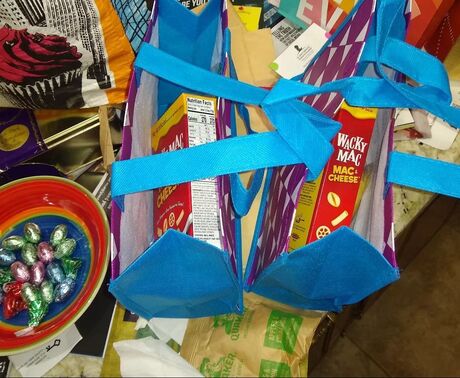
To Quote David: That's my Mishloach Manot... I had to get rid of the Wacky Mac and oatmeal. Had it for a year and Pesach is coming. I have no idea what the Bergmans are going to do with it. It's on them to figure that out now... To note, the green and red Hershey's Kisses, along with the Hershey's Kisses eggs, is the Purim holiday themed stuff I found at Walmart, on sale.
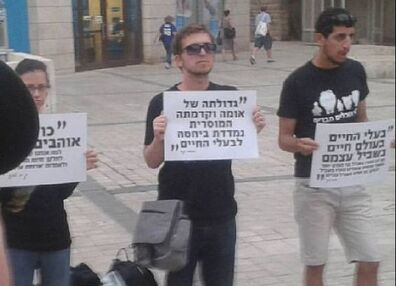
Israelis know how to protest when there's a war. Firstly, that guy in the middle looks so cool telling people not to kill animals, The sunglasses bring a level to the protest. You want to show up to the demonstration ready to meet a lady. The girl to his right is definitely digging it, along with the Lincoln beard (the beard of rooster solidarity)... The sign on the left of a treat animals well line was offensive... That guy's sign reads 'Animals think about themselves,' which supports the dislike of selfish chickens.
The Blog Tags Widget will appear here on the published site.
Tags:
The Recommended Content Widget will appear here on the published site.
The Breadcrumbs widget will appear here on the published site.
This is exactly the scene at the shul we were at for Taanit Esther. No moral to the story. Just a great scene with the characters from the shul. A great scene for the kids at the day school to act out.
Scene 1 INT - SHUL - DAY Everybody in the shul has been fasting all day. They're hungry and at shul for Mincha, the afternoon prayer. Nobody is happy. They walk into shul a schlumpy. They grunt at each other. Congregant 1: Ahhhhh. Congregant 2: Ahhhh. Been working all day at the factory. The fast is killing me. Congregant 1, 2, 4, 5, 6, 7: Food. Congregan 3 walks in, the only cheery guy. Congregant 3: The fast is about Teshuva. Repentance. It's about being with people and getting along. Rebuilding the Beit Hamikdash through love of your fellow Jew. Congregant 2: I can't stand this guy. Congregant 3: You're supposed to feel good. Everybody looks at Congregant 3 not happily, and grunt. Scene 2 INT - SHUL - DAY Everybody is in the middle of the silent prayer, the Amidah, and saying the additional prayer of penitence for H' to answer us on this day of our fast, the Aneiny prayer. Somebody says the beginning of the prayer out loud, to remind people to say the additional prayer and to show off that he remembered to say it. Congregant 4: Aneinu H' Aneinu. Everybody acknowledges. Congregant 4, and give him a thumbs up or a fist of approval. They continue praying the silent prayer. Congregant 4 smiles with self-contentment and pride. All continue praying. From the hallway, you hear a big crunch. Definitely potato chips. It's heard by everybody, while they are praying. Another crunch is heard. People start looking at each other and get back to praying. Another crunch is heard. All of their prayers are interrupted. They can't concentrate. The guy starts eating faster and louder. People are looking at each other. You start to hear the bag now crumpling. He hear the guy crunching more on the chips. You then hear the crescendo, the guy drinking the rest of the chips. There is silence for a second, everybody gets back to the Amidah, silent prayer. Congregant 2 finished the Amidah and walks over to Congregant 1. You hear another crunch. Congregant 2: They're happy. The sound of the rest of the bag crumpling is heard. People are interrupted in their prayer again and show frustration, looking at each other. There is a moment of silence. They are all back praying the Amidah with Kavanah, intent. Twenty seconds later, you hear another chip going into the mouth with a loud crunch. The crunching continues at a fast pace. Everybody is finished and walks towards the door. Scene 3 INT - SHUL HALLWAY - DAY Baruch, the one that has been eating, is sitting outside opening another bag of chips. He has three bags open out there. Another crunch is heard. Baruch is sitting outside the door of the shul, in the hallway, has a table setup right there, full of food and drinks. The Minyin (the men praying) walk outside and see the guy. He is now spreading peanut butter on celery and an apple. Congregant 1: It's Baruch. Congregant 5: Do you eat anything silent? Maybe a rugulach? Congregant 6: He has Kichel there. Congregant 2: Can we get some of that? Baruch: It's a fast day. How can you even think about eating? It's shameful. Congregant 5: You're eating. Baruch: You have to wait till the fast is over. I'm sick. I have to eat. The doctor said I need the nutrients. Congregant 2: Then why are you eating chips? Baruch: Are these not nutrients? Look at the bag. There's a box that says 'nutrients' right here. And look. Celery and apples. Congregant 1: But you're eating chips. Congregant 5: Should he be eating nutritious food? It's a fast day. Scene 4 INT - SHUL - DAY Everybody goes back into the shul. The Chazin begins the repetition of the prayer, outloud. Baruch keeps on eating. Takes a bite of the celery. Congregant 1: Everything he eats is loud. Congregant 5: You can't have Kavanah (proper intent) when Baruch is eating. You hear Baruch start chewing his apple, and you see him smiling. The happiest man on the fast day, as he is sick. Congregant 3: That’s how you’re supposed to be on a fast day. We pan back outside and we see Baruch eating chips again. Kibbitzer Conclusion Eating outside the shul on a fast day is the next level of funny. Hearing the chips added another layer to the regular scene of angry people. Brilliant timing. All these fatigued people and they hear this guy outside munching on the food. Being sick on a fast day is not that bad. It also interrupts Minyin. Don't try to talk about repentance or love of your fellow man on a fast day. People only want to talk about the day being done. Nobody causes hatred of Jews more than a happy guy on a fast day. That is what causes baseless hatred and why the Temple was destroyed. In the end, Congregant 3 was hungry. Something about hearing chips brings hunger. Nobody feels better than the guy who calls out the Aneinu or the Yaleh vYavo when it's Rosh Chodesh. You can feel that pride when they call it out. The people who said the Aneinu silently feel like idiots for not calling it out, when they could've been a star. The shul pride lasts for days. Almost as much pride as the guy who clops the table to scare everybody into saying the Yaleh vYavo. Happiness for the congregants started after Megillah reading, when people started eating. They still grunted at each other. The Blog Tags Widget will appear here on the published site.
Tags:
The Recommended Content Widget will appear here on the published site.
The Breadcrumbs widget will appear here on the published site.
In the times of Megilat Esther we were commanded to 'send food portions, man to his friend.' Known as Mishloach Manot, this is how we are commanded to celebrate Purim, along with gifts to the poor and more food for us. (Esther 9:22) 'Days of feasting and happiness, sending of portions to one another, and presents to the poor.' It all means food. As the rabbis realized very quickly, Jews can only be happy with food. The entertainment will be complained about, but the food will be complained about and enjoyed.
So the Jews decided to send food to one another in the form of wicker baskets. Wicker is very easy to clean if there is a spill. There were a lot of spills back then, as packaging wasn't good in the BCEs. And then there was Easter. So, all Jews started buying whatever they could find on sale, to give to their friends. Walmart had a whole section of bunnies and chocolate, and that is how we see chocolate eggs in our Mishloach Manot, along with Kinder eggs. They then decided to also give the tiny bottles of alcohol they were able to steal from ELAL. And then Haddar started selling Hamentashen at Costco. Thus, the Hamentashen people get in their Mishlaoch Manot. Unmarked Hamentashen, made by Haddar, the new taste of kosher, hand pulled from the plastic package, in sandwich bags. Unpackaged, making crumbs in your Mishloach Manot, as in ancient times. And then people started receiving a lot of Mishloach Manot, and they tried to figure out how to save it for the following Halloween, or to hand it to a neighbor they didn't think about when making their own Mishloach Manot.. At first, Mishloach Manot were only sent to one person, to fulfil the commandment of 'portions.' That became very overwhelming for some families, who had just started cleaning out their fridge and preparing for Pesach. To quote Bernie: 'In the 1950s, we just found it easier to give our gift packages in bulk form... To tell the truth. We threw everything we could into that package. Anything we could get rid of. We had Pesach coming up, and getting the junk-food out of the house was paramount. Most of our sweets were Chametz. Anything leftover from last year, we sent it. Anything we found on sale, we sent it. We sent it all. Any candy we found, we threw it right into that bag. A lunch bag. It was clear that it was stuff we had to get out of the house. Leftovers? They were all in there. We even sent somebody a bit piece of chicken leg.' Picking up on this, the world of wicker started making smaller Purim sized baskets. Hence, Mishloach Manot were something that were something you had to give to everybody in the community. Ending with the most important tradition of forgetting somebody, and offending them. I have witnessed new Purim enemies in my community every year. Tradition. And that is how we end up with small wicker and plastic packages, full of Easter eggs, a bunny, Hershey's Kisses in Christmas themed packaging, Hamentashen from Haddar that will last through next Purim, a thimble sized bottle of Johnny Walker, and plastic cling wrap, showing up at your door, from the Cohens, with a note written out to the Cohens, for the Cohens to have a Happy Purim. Not you. The Cohens didn't need the Chametz either. And they didn't care enough about you, to write your name on it. Maybe they just wanted to gloat, that the Schwartzs thought about them and gave them stuff. I don't know where the hundred gram chocolate bar tradition started. I wish I had a good answer as to the origins of that tradition. Bite size chocolate makes sense, as there are leftovers from Halloween, and thus, part of our tradition. Maybe some wealthy Jews got involved and were giving the nonJewish kids full chocolate bars for Halloween. Be it what it is, I have never come across full size chocolate bars on sale. I've only found Halloween bite size on sale at The Christmas Tree Shop. For that matter, tradition of giving out small packages of Mike and Ikes in wicker has also found its way into many communities. For that matter, bottles of Kedem grape juice in Mishloach Manot is also religiously questionable, as they are not tiny, and most of them are Kosher for Pesach; thus, there is no reason to get rid of them. A large bottle of vodka may find its way into Mishloach Manot, when you have a friend who has too many kids. Even so, whiskey is better, as you may want to unload that for Pesach. No tradition of fruit was ever part of Mishloach Manot, as that brings happiness to nobody. Dried fruit may be added, as sugar has been concentrated in those, and you have leftovers from Tu BShvat. That is how the dried fruit tradition started in the 1600s. The Frum community decided to stick with wicker and plastic bowls. That is what you have today in the Frum community. The less Frum communities have adapted the paper plate Hamentashen. Choosing origami over tradition. The good thing about the paper plate Hamentashen is that there's a limit to how much it holds. With the staples on the sides (staples is how Jews do origami- it holds together better that way), heightening it, there is a limit to how much overflow the plastic cling wrap can retain. All communities now pick-up their Mishloach Manot accouterments at The Christmas Tree Shop. Another Jewish tradition began in the 1990s. Please note that you cannot make a decent Hamentash out of a plastic plate. They crack and it looks like the bakery messed up your pastry. Another note, while we are noting historical facts. Kinder eggs have been banned from Mishloach Manot, as the kids would rather eat the figurines than play with them. No tradition of masks and groggers in your Mishloach Manot was ever developed. They are not edible and thus useless. What you see in the children Mishloach Manot bags are just for kids to enjoy the holiday and throw on the floor. If they had bite size masks, the tradition to add them to Mishloach Manot might have developed. Next time, we will delve into the traditions of the Purim kid bags that come in cone form. We will also research when cleaning began. We believe modern day cleaning up began with the first children leaving their wrappers on the floor in the year 118 CE. Many have asked about the tradition of sending cake and pancake mixes. That is forbidden. It is not enjoyable to have to cook. The commandment is to be happy, and that happens with pre-made food. Though it's not tradition to send brisket, as it brings more Simcha (happiness) to eat it oneself, it may be done. If you are wealthy and have somebody else cooking for you, it's fine to send brisket, along with the full chocolate bars. The card has always caused problems. The tradition of having somebody's name attached to the recipient part of the Mishloach Manot was put there to ensure that Jews didn't get along. The ancient tradition made sense, when they would literally send Mishloach Manot through messengers. However, they stopped the tradition of sending the Mishloach Manot, in the year 1643, once they realized that the messengers were eating the chocolate on the way. I am happy to answer any of your questions about Jewish history. The Blog Tags Widget will appear here on the published site.
Tags:
The Recommended Content Widget will appear here on the published site.
The Breadcrumbs widget will appear here on the published site.
It has been too long since our last major holiday. I've been working, and it got me thinking. Thank Gd Purim and Pesach are coming. I need a break.
I loved the holidays as a young boy and I still love them today. Holidays meant days off from school. And that meant happiness. A happiness engraved in my soul. So, I bring you some of memories of my love of holidays in third grade. I Loved the Food Brisket meant two days with no school. That juicy meat was good, and it meant no classes. That's how I associate with brisket. My mom was always happy around holiday time, as it's a Mitzvah to be happy. She would also complain about the two day holidays that Jews keep when they are outside of Israel. Apparently, my mom didn’t like cooking as much as I thought. I thought she delighted in cooking the required 15 meals, for the seven of us, and the guests. She would call it slaving. Even so, she looked nothing like the Jews leaving Egypt. I had a picture Haggadah. I never saw one of those slaves cooking. My mom would never let the guests know of her situation as a parent. If she would have told somebody, they might have gotten her out of it. At a certain point, when I took my first standardized test, I began to understand my mom. I told the guests about true slavery. I Loved Praying Holidays meant shul and prayer. I felt so close to Gd when I was in third grade, that I prayed every day for no school. I even began praying for brisket. That prayer went, ‘May my mom not be a slave, so she can cook.’ Believing in Gd meant more vacation and I connected with my religion. I wished the holidays would last all year. I wouldn’t have to go to school and my mom would be able to make a hot lunch every day. This way she could get used to cooking all the time, and not feel like she was slaving. As I learned in school, the more you get used to something, the less it feels like a chore. And that was true for everything, but school. One thing that had me questioning omnipotence, was bagged lunches. Half Day of School is Still Religious I would also get excited for minor holidays. I define minor holidays by celebrating in school. That meant my parents would have to go to work; that didn't hurt my celebration. Even when we did have school, holidays meant more art projects and other activities we called religious, because they taught us nothing. On Purim, we would have a half day of school and that was the Purim carnival. I even enjoyed the throw the sponge at David’s face booth, as I was committed to the community. I would risk my well-being for the sake of fewer classes. Even fast days were great, as we would get half day off of school. I became a devout youth and started praying for more tragedy. Chabad Loves Booths & I Love Chabad The Chabad rabbis always had these great booths. We would get to skip class for a shofar making booth, where we made shofars we couldn’t use. We also learned about the bad smell of a ram’s horn. They also had a grogger making booth, for Purim, where we made noise makers that were too heavy to pick up. I was a big fan of the booths, though the Chanukah Menorahmobile, with the lit candles, always looked dangerous. I stay away from booths in transit. Factories are Better than Booths There was the Chabad Matzah Factory, or as I called it, dream day. This took place a week before the Pesach. The Matzah Factory, multiple booth set-up, including a field trip. A whole half a day off from school, to have us flatten dough for Passover. Though it was matzah, we couldn't it eat on Passover. That was part of the education, letting us know that no matter how well we kept the commandments, it was not good enough. As such, our Matzah was not fit for Passover. I was happy with the sweatshop Matzah work. Many people look at sweatshop work as though it is negative. They think, child labor is wrong. However, it is OK if it is for education. The school also had us selling chocolate bars at a 600% profit, for which we received a rubber basketball if we sold $500 worth, as child labor is OK if done for education. I loved holidays before the holidays even happened. Half a day off of school. Who could have ever thought that 18 minutes could last so long? Holidays with Full Day of School = Not Jewish These days were of religious nature, as we had an extra art class. Even so, as much as I loved papier-mâché, they were not Jewish to me. This is why I never considered Martin Luther King Jr. a Jew. Not to offend. I knew when a non-Jewish holiday was coming, as 'Day' always followed the name. Lincoln Day, Martin Luther King Day, Evacuation Day, which they kept us in school for. Other kids never got days off of school for their holidays. Which made me feel bad for the Christian kids at Hillel Jewish Community Day. Poem from Third Grade by David Kilimnick This might just say it all: Oh Shabbat How I love you Pesach, Sukkot You are the joy of every Jew Shavuot, Yom Kippur I love you too I love every day When we don’t have school Mrs. Funsten gave me a bad grade on that, though ‘school’ loosely rhymes with ‘Jew.’ I had a diction problem and never was able to pronounce the ‘l.’ And that was wrong of her. Sundays Don’t Last all Week Would I have traded my religion for a whole week of Sundays? Yes. But you have to live in reality, and I never witnessed anybody who had a whole week of television. Heaven does not exist on earth. Educational television gave me hope for a better world. ‘321 Contact’ was that little piece of heaven brought into the hell of school. Those genius 8-year-old detectives were as close to redeemers I have ever witnessed. I love you Bloodhound Gang. I have no idea how you made it to Mrs. Funsten’s class, but thank you. You taught me that gangs are good. Finished School - Still Religious? Once school stopped, I had no reason to be Jewish. I could have as many vacation days as I wanted. Then I got a job. I was once again a believer. I got to take days off of work because of my religion… Then they started making me come in on Sundays, because of the holidays I took off. I will forever love our holidays. Holidays, food and no school are one in the same. I can't wait for Purim next week, and Pesach next month. If it was Thanksgiving, it would be just as good. We got off of school then too. And my mom made brisket. Thou shalt not lie. If we would've had a day off and recess, I would've loved being Jewish more. For the educators of our youth, I am putting that out there. The Blog Tags Widget will appear here on the published site.
Tags:
The Recommended Content Widget will appear here on the published site.
|
A well put together cover page for a Jewish newspaper. I knew I was reading a Frum Jewish newspaper, as they found a way to fit 28 ads on the cover page. And the feature article is an ad for Amor jewelry... A properly written Jewish magazine should be advertisements. I once read a non-religious magazine, and I felt like a sinner when I read an article to only find there was no phone number at the end of it. I felt defiled… It’s a shame the Amor ad is so big. They could’ve got another 20 ads in.
(Shulchan Aurch 568:1) One who eats by accident on a fast must continue fasting. Making for a three hour fast to fully mourn the Churban of the Temples. I believe that break between meals fully calls to heart the true yearning of my soul over the loss of the Batei Mikdash... You can't eat once you remember you sinned, as one who committed a sin can't commit a second by snacking once they're already full.
Categories
All
Archives
July 2024
|
© 2021 Kibbitzer Magazine and JHF. All rights reserved.
The Kibbitzer, where we take Jewish comedy seriously!!! If you are offended, it's satire.
A friend of the Off The Wall Comedy Theater, JHF and The Kibbitzer are here to bring unity and Jewish connection for you, in honor of Rabbi Kilimnick ZT"L.
The Kibbitzer is Funded by the JHF (The Jewish Humor Foundation) and you.
Contact us to make a donation and to sponsor Harbatzas Tzchok, the spreading of tradition through laughter, with articles or series in honor and memory of your loved ones.
The Kibbitzer, where we take Jewish comedy seriously!!! If you are offended, it's satire.
A friend of the Off The Wall Comedy Theater, JHF and The Kibbitzer are here to bring unity and Jewish connection for you, in honor of Rabbi Kilimnick ZT"L.
The Kibbitzer is Funded by the JHF (The Jewish Humor Foundation) and you.
Contact us to make a donation and to sponsor Harbatzas Tzchok, the spreading of tradition through laughter, with articles or series in honor and memory of your loved ones.

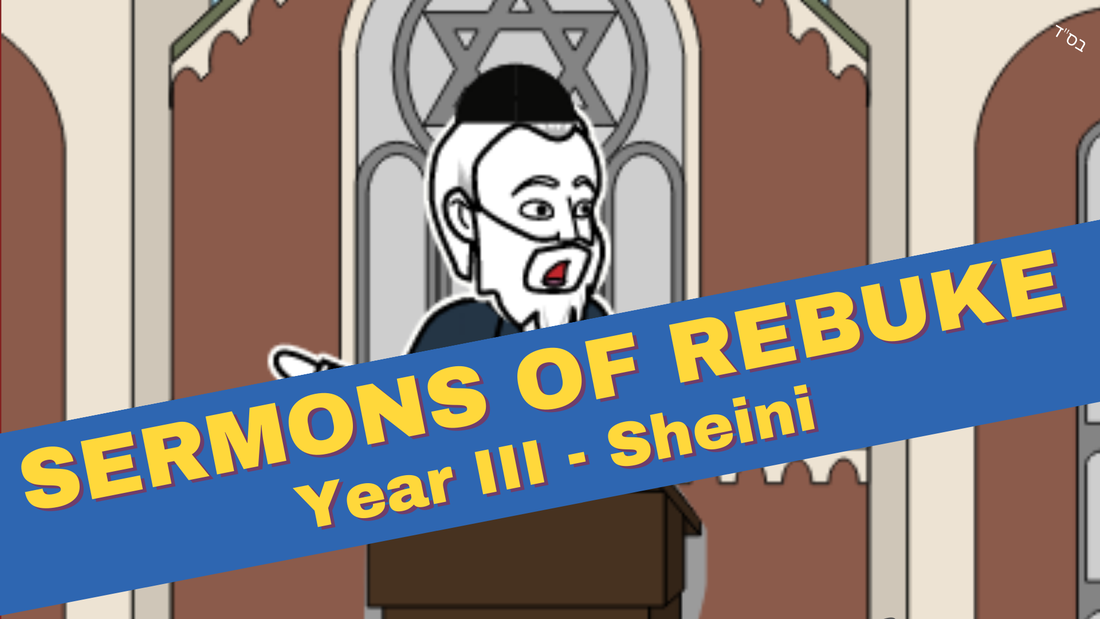
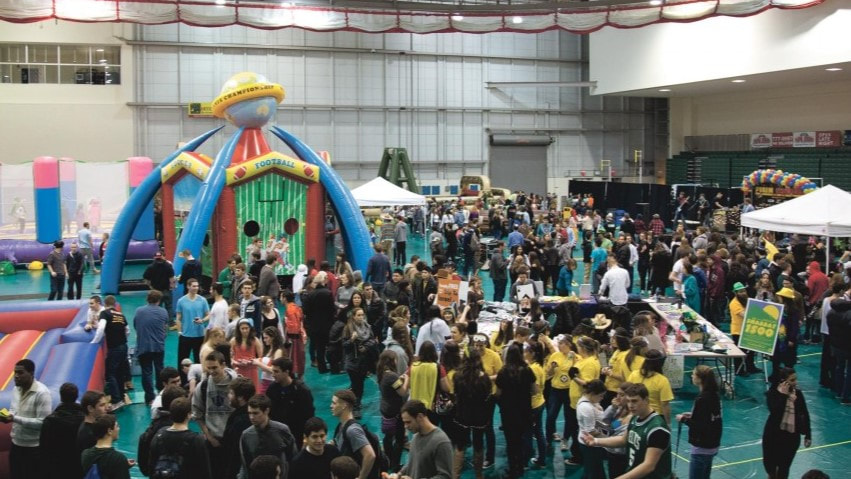
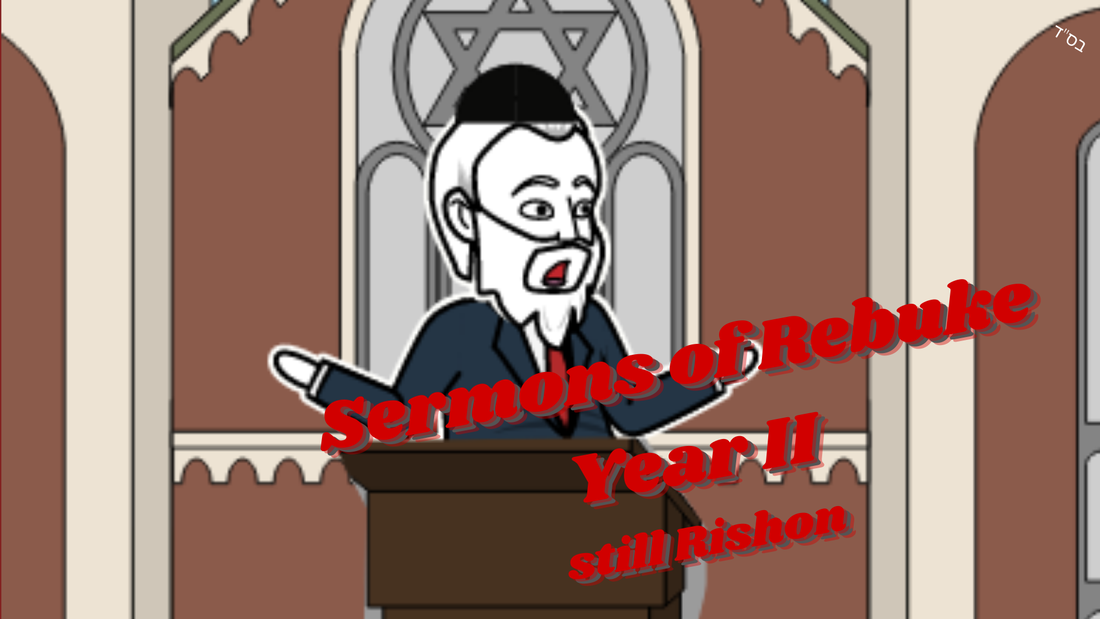
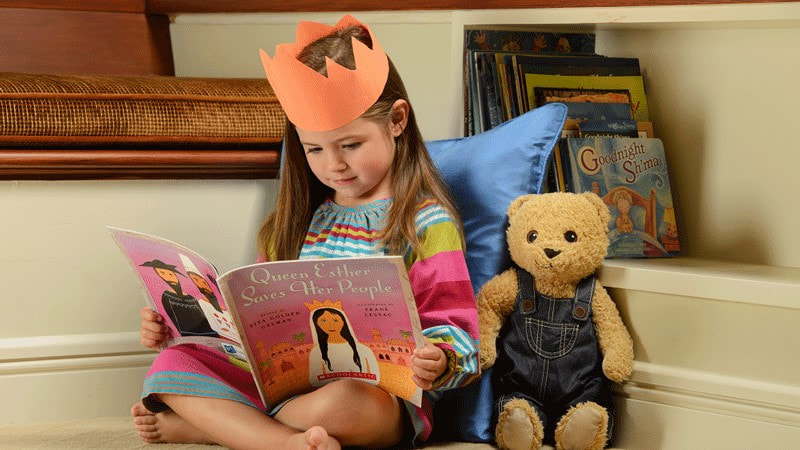
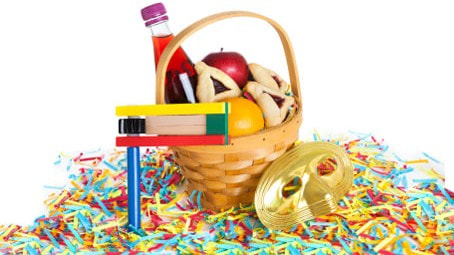
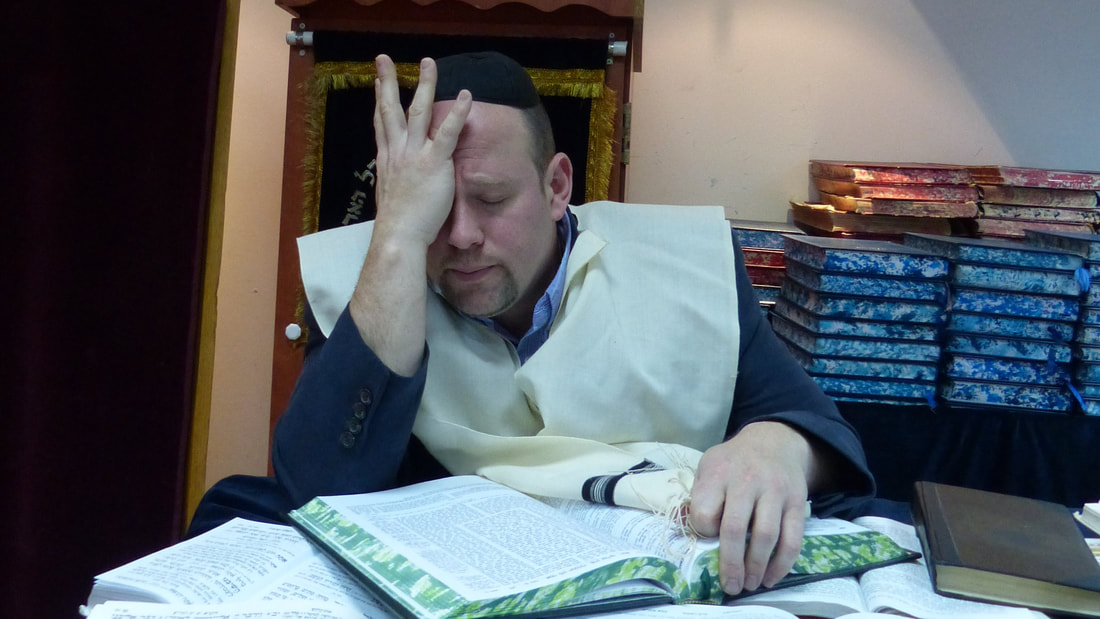
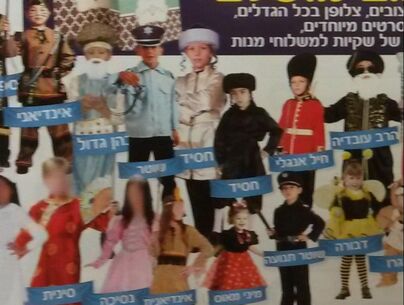
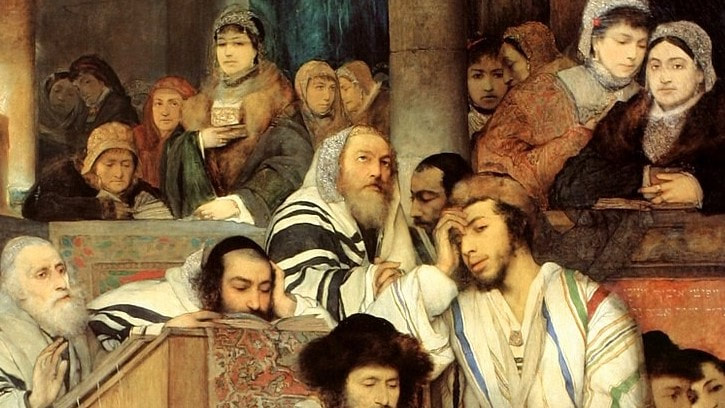
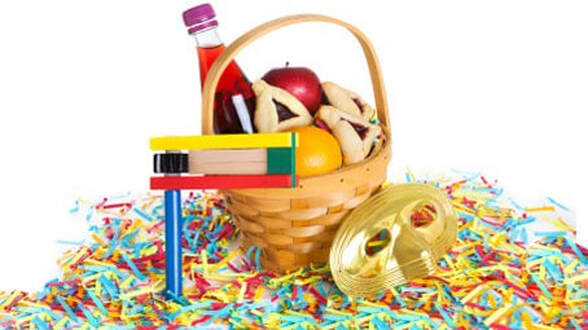
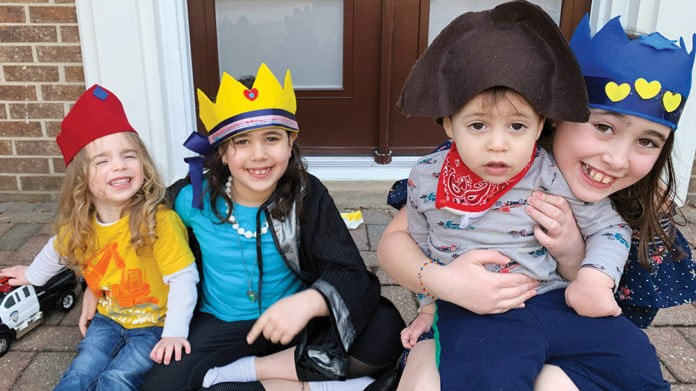




 RSS Feed
RSS Feed

3/24/2024
0 Comments